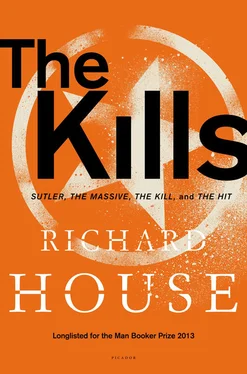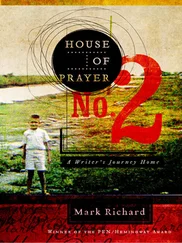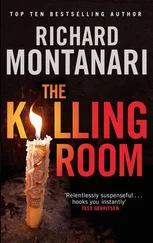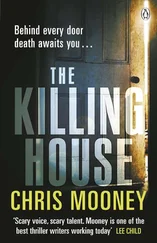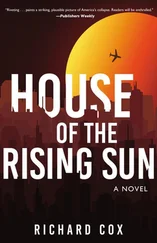Richard House - The Kills
Здесь есть возможность читать онлайн «Richard House - The Kills» весь текст электронной книги совершенно бесплатно (целиком полную версию без сокращений). В некоторых случаях можно слушать аудио, скачать через торрент в формате fb2 и присутствует краткое содержание. Год выпуска: 2013, Издательство: Picador, Жанр: Современная проза, на английском языке. Описание произведения, (предисловие) а так же отзывы посетителей доступны на портале библиотеки ЛибКат.
- Название:The Kills
- Автор:
- Издательство:Picador
- Жанр:
- Год:2013
- ISBN:нет данных
- Рейтинг книги:3 / 5. Голосов: 1
-
Избранное:Добавить в избранное
- Отзывы:
-
Ваша оценка:
- 60
- 1
- 2
- 3
- 4
- 5
The Kills: краткое содержание, описание и аннотация
Предлагаем к чтению аннотацию, описание, краткое содержание или предисловие (зависит от того, что написал сам автор книги «The Kills»). Если вы не нашли необходимую информацию о книге — напишите в комментариях, мы постараемся отыскать её.
The Kills — читать онлайн бесплатно полную книгу (весь текст) целиком
Ниже представлен текст книги, разбитый по страницам. Система сохранения места последней прочитанной страницы, позволяет с удобством читать онлайн бесплатно книгу «The Kills», без необходимости каждый раз заново искать на чём Вы остановились. Поставьте закладку, и сможете в любой момент перейти на страницу, на которой закончили чтение.
Интервал:
Закладка:
‘But what about Kiprowski?’
‘Kiprowski hasn’t disappeared.’
‘You found Kiprowski?’
Parson gave a simple nod. He stopped at the door and waited as it was unlocked.
‘What happens now?’
‘I don’t know.’
As the door drew open Parson placed his cap back on his head. In the centre of the door a single key with a scuffed metal tag in a single keyhole. Parson kept his eyes fixed on the key as the men were escorted from the room.
2.6
An hour out of Kopeckale the coach began to ascend the central plateau. Ford drifted in and out of sleep as the mountains beside the city fell away and the horizon took on a smooth uninterrupted curve. Each time he woke a sense of disconnection veered him back to Amrah City and he returned to the present with a slight pang, a regret that Sutler was done with, and that he would not see the project advance, and that the Massive would develop without him. All of this needed to settle in the past. Ford pressed his forehead to the window and allowed the judder to shake up his thoughts as the land on either side became white, parched, and lunar. Away from the desert the project seemed less about ambition, the pure improbability of building something from nothing, and more about hubris, pride and greed, about the oil, about the minerals, about maintaining presence and influence long after the withdrawal of troops.
Once on the plateau the road became level and the plains gave way to bare fields sectioned by low stone walls. To their right an irrigation ditch ran parallel to the highway, to their left the creosote-caked oil lines; the pipeline irregularly set with field stations, some abandoned, some burned, some scrawled with graffiti, a few transformed into temporary shelters. Ford’s eye scuttered along the course and passed over the refugees, figures strung single file in clusters of four or five, seldom more. The driver sounded the horn to drive the vagrants off the road, and they stepped, automatic, onto the margin without gesture or complaint. Heads protected from the sun with cloth or plastic hoods.
* * *
Villages set back from the main highway appeared undisturbed by the war; the scars of mortar strikes scored the roadside as rough black craters, as certain truths; a few buildings, remarkably few, pecked with gunshot, fewer still were simple roofless shells — all signs of the earlier insurrection. Signs of the current troubles were limited to the skirting squatter camps of makeshift tents and tarpaulins. Ford watched, indifferent, he would be happier once they were on another route.
The student from the station sat two rows ahead, his feet struck across the aisle, the paperback open on his thigh. The boy’s sweater slipped from the overhead rack and one sleeve swung over his scalp, his hair cropped, the skin white, untanned. A horizontal scar, one inch long and lightly raised, tapered to a point above his left ear. On the back of his white T-shirt a logo of a large red star in a red circle. An attendant distributed towels scented with rose water. After the man had passed by, the student dropped the towel under his seat and wiped his hands on his shorts. His arms were lean, muscular, formed through sport.
* * *
Mid-morning he woke addled and uncomfortable. Slowly rising to the present, he realized that the coach had stopped and they were at some kind of checkpoint — and there were soldiers mounting the bus.
The military police stood in a line in front of a barrier, the road curved behind them, rising, bare, a tractor and trailer packed with refugees stopped beside the embankment. Passengers assisted each other from the trailer and stood side by side on the hot white scree, sulky and agitated but visibly humble; a few of them held out documents as if offering a petition while the soldiers, regardless, tossed their luggage onto the road. From what Ford could see there was no explicit purpose to the search.
One gruff and baby-faced soldier barked instructions at the coach driver. The driver civilly repeated the soldier’s demands and the passengers rose without complaint and began to disembark. The student peered over the headrest, startled, poised a little like a flightless bird.
The passengers began to assemble beside the coach. Their lethargy struck Ford as a sign of assent, a sign that this was not unusual. The student held back, then with a deft stab he tucked a small plastic bag between the seat and the seatback. A guard leaned into the bus and told them, as far as Ford could understand, to get out. The soldier’s face became a comedy of infantile demand, plump, sulky.
Off the coach and out of the air conditioning the heat pressed down. Ford rolled up his sleeves and stood with the passengers feeling a wash of heat; everybody squinting at the coach’s silver side while the driver sorted through the luggage in the hold. The student waited beside him. The driver, labouring alone, passed Ford the wrong rucksack. The mistake became immediately obvious as soon as he lifted the pack; this rucksack being newer, cleaner, was also heavier than his. The label, a clear plastic star, gave the name Eric Powell, and an address in France on one side and in New York on the other. Ford handed the rucksack to the student and returned to the hold to claim his own.
The student waited with him and asked if he understood what was happening. American, he spoke in quick bursts. His accent, East Coast, precise and educated, sounded different to the supple Midwestern drawl Ford was used to. Ford retrieved his bag from a line of luggage, the boy followed and picked out a small metal case then walked back to the line of passengers. He repeated his question and Ford said he didn’t know, whatever it was it didn’t look out of the ordinary. Ford looked back at the tractor-trailer. Unsupervised, the refugees, mostly women, huddled in a pack as if hiding, luggage loose in the road. The passengers from the coach, mostly men, and most of them smoked, strung out in a line waiting for the patrol to check their papers and belongings. The student set his case close to Ford’s feet, looked clearly into his face, and gave a nod, as if Ford had asked for assistance, as if the small silver case were his.
‘It’s film,’ the student said, indicating the case, ‘undeveloped sixteen-millimetre film. Shots of landscape. That’s all it is. Every time I’m searched they open the camera.’ His hands gestured the unspooling of film.
The student stood a distance away with his rucksack, leaving a gap of three or four paces between them. Ford could not see the purpose of it and did not like the boy’s assumption that he was sympathetic. Even so, he did not step back.
They waited in line with their backs to the sun as the soldiers inspected the bus. The road cut into an escarpment, a curved chalk wall. In front of them ran the straw-coloured plains of Anatolia. It was good that this was only the Turkish military. If they were British or American he would be nervous — despite the day, the bright sunlight, the broad view of open fields.
One soldier examined the hold and shuffled on his knees through the empty compartment. Above him two soldiers searched the cabin, to check the floor, the seats, and the racks. The coach wavered in the full midday heat. Another soldier, pug-faced, younger than the others, led a muzzled Alsatian between the passengers and their luggage. He held the leash high and tugged the animal between the baskets and suitcases. A compact semi-automatic slung over his shoulder, battered and hand-me-down. The soldier stopped the dog in front of the student and forced the dog’s muzzle to the student’s backpack. He indicated that the student should open it. To Ford these soldiers were boys. Smug, fresh, untested.
The student crouched and unzipped a side panel to show folded shorts, T-shirts, rolled socks. Tangled inside the main body of the bag lay an assortment of climbing gear: bright-coloured cord, strong steel buckles. The student mimed what they were for, and repeated, climbing. It’s for climbing, until his gestures became cocky, suggesting that the soldier was a little dumb. Cli-ming. Climbing. He pointed to the white rockface behind them, then the ropes and steel clips. How obvious did he need to make this?
Читать дальшеИнтервал:
Закладка:
Похожие книги на «The Kills»
Представляем Вашему вниманию похожие книги на «The Kills» списком для выбора. Мы отобрали схожую по названию и смыслу литературу в надежде предоставить читателям больше вариантов отыскать новые, интересные, ещё непрочитанные произведения.
Обсуждение, отзывы о книге «The Kills» и просто собственные мнения читателей. Оставьте ваши комментарии, напишите, что Вы думаете о произведении, его смысле или главных героях. Укажите что конкретно понравилось, а что нет, и почему Вы так считаете.
